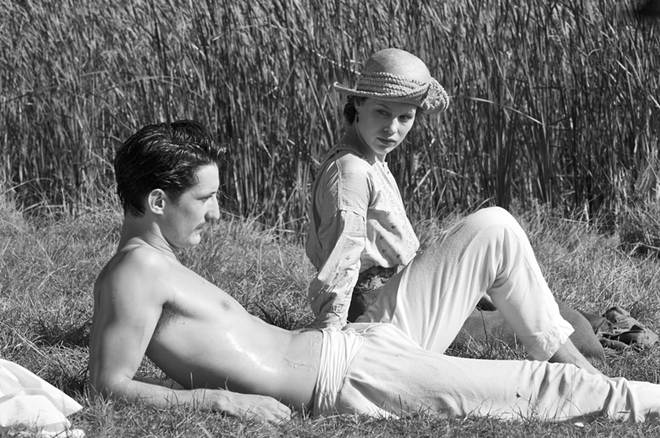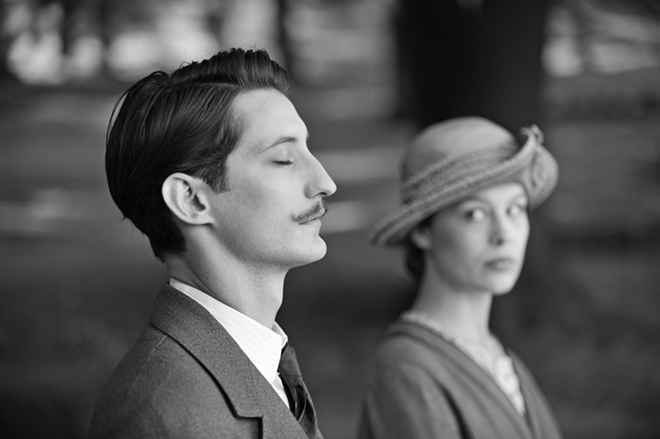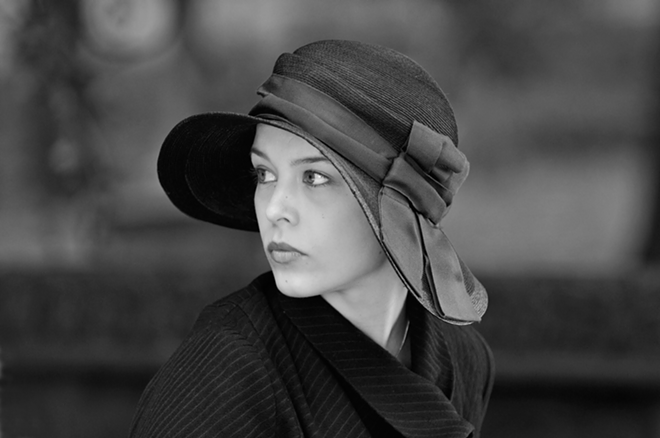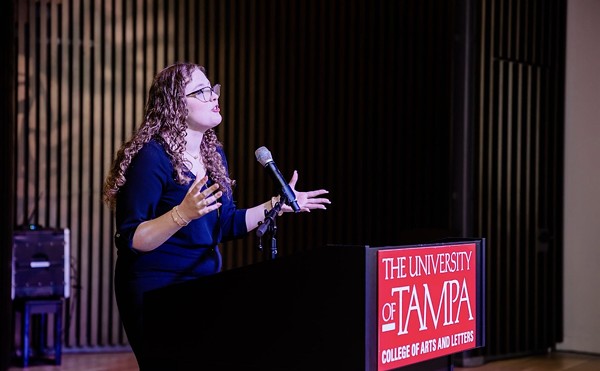One probably shouldn’t begin a film review by referencing the French Symbolist poet Paul Verlaine. But here it’s most appropriate. In “Autumn Song,” Verlaine writes of sighing violins, seasonal wounds, languorous sounds, unreliable memories, ill winds, dying leaves.
Really, that is the essence of Frantz, the latest film by French director François Ozon (8 Women, Swimming Pool). The melancholic sense of loss and grief that Verlaine conjures in his poetry, now incorporated into this film, becomes a throbbing, sobbing motif that haunts the movie.
Frantz (winner of the Grand Jury Prize for International Feature at the recent Gasparilla International Film Festival) is a searing indictment of the pure, unadulterated waste of World War I. The old men may supply the ammunition and bayonets, but it is the young who die. And even if they live, that is a kind of death, too.
Set in Germany and France immediately after the Armistice, this black-and-white film, with dialogue equally in French and German, follows post-war lives with color-drenched evocations of pre-war contentment. The film opens in Germany with Anna (Paula Beer) placing flowers at the grave of her fiancé Frantz Hoffmeister (played in flashback by Anton Von Lucke), only to discover that Adrien Rivoire (Pierre Niney), a French soldier, has turned up unexpectedly at the grave. His inexplicable French presence in this German town reminds everyone of the slaughter they have all recently endured. Why has Adrien come? Just what was this German stranger’s relation to Frantz, and why is he so mournful? How does Anna survive when everywhere she is reminded of emptiness? What of Frantz’s parents Hans and Magda (Ernst Stötzner, Marie Gruber), who suffer the anguish of their child devoured by the maw of this voracious war?
The stories we hear and the answers we are given change over the course of the film, as slowly more guilt is acknowledged and bigger truths uncovered. The revelations continue when the roles are reversed. Just as the French Adrien had traveled to Germany, now the German Anna travels to France. Both have secrets to suppress.
What follows is a surprising exploration of these characters as they wrestle with their swirling, conflicting feelings. This lost generation must contend with its own rage, guilt, impotence, disaffection, and nihilism in the face of the war’s carnage. Yet they must find a reason to be happy again, a reason to resume any semblance of sexual, romantic, familial normalcy.
The final credits suggest the film is “freely inspired” by Ernst Lubitsch’s 1932 Broken Lullaby, an eminently forgettable yawner (except for Lionel Barrymore and his anti-war tirade) about the post-war aftermath of this European slaughter. Ozon has significantly upped the ante in this melodramatic remake. This is not so much a film on the theme of war, as there’s little to see on that front. Instead the film concentrates on the search for absolution through touch and intimacy, connections shattered beyond recognition by the war.
As it is, after all, a melodrama, it’s understandably heavy on the aforementioned throbbing and sobbing. The plot tangles as Anna searches for answers from Adrien, a man always less-than-forthcoming, even hidden, if not closeted, with his Adrien Brody-arched eyebrows, sad eyes and malleable face. But Anna is by far the more interesting character, and it’s remarkable that this is Paula Beer’s first role. What a stunning debut as she must reflect all that range of conflicted grief and desire. It’s sheer pleasure to watch her maneuver through her discoveries, her face and reactions wonderfully calibrated to each revelation. Douglas Sirk, that master of melodrama of 1950s Hollywood, would have cast her immediately.
Melodrama notwithstanding, there are powerful moments in this film that left me if not throbbing, then at least sobbing. The stupidity and arrogance of those who ran this war only magnifies the loss of these young lives who died as cattle before those “shrill, demented choirs of wailing shells.” But the film spends little time in the trenches. Instead, we see the shattered lives away from the battlefield. There are idyllic meanderings with lovely tracking shots in the Louvre, violin lessons to be taught with the teacher’s arms enfolding and guiding the student’s efforts, an undelivered letter read out loud from memory, a haunting quietness of wet streets, the Paris Orchestra playing Scheherazade, a prescient Manet painting of a pale young man with his head thrown back.The stunning black-and-white palette is by cinematographer Pascal Marti. Here the blacks are deeper and richer than any saturated color could be, and it serves both to distance us from the history and heighten the emotion. This is not “merely” a film about World War I, now a century ago, but a film about the ever-present ghosts that remind us of our own lost time.
Occasionally come dreams, or flashbacks, or lies, where black and white melt into a soft pastel, like chalk rubbed onto cobblestone, a veritable remembrance of things as they might have been.






















